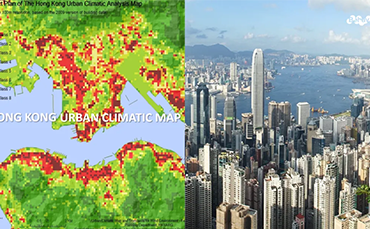

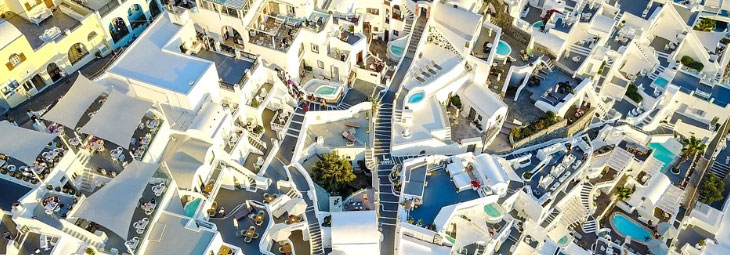
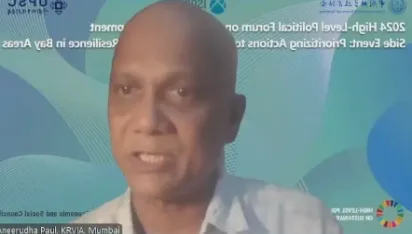
Aniruddha Paul Dean and Professor at the School of Architecture, University of Mumbai, India
Planning Nature-Based Wastewater Treatment Systems for Inland Water Bodies in the Mumbai Metropolitan Region
Aniruddha Paul discussed the shift in the approach of the Mumbai Metropolitan Region in dealing with flood disasters. When the region experienced severe flooding in 2005, the local government attempted to divert water out of the city using engineering solutions, but the results were not effective. He pointed out that the Mumbai Metropolitan Region is scattered with over 3,000 inland water bodies, with around 1,200 of them surrounded by residential areas. In this context, draining water from the city directly is not an effective strategy. Instead, a systematic approach is needed to rebuild the relationship between the city and water, fostering a symbiotic coexistence between the city and these dispersed water bodies.
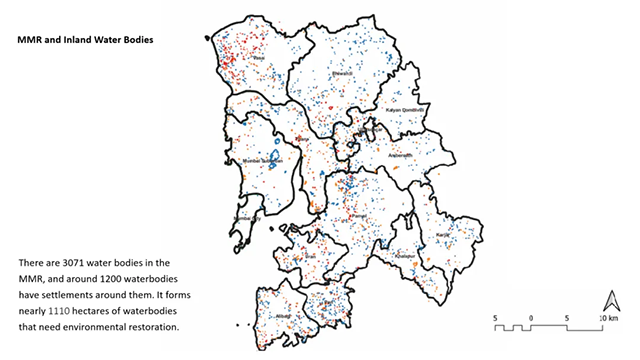
He explained how a pilot project uses nature-based solutions to address disasters: by working with the community to treat wastewater using natural methods such as filtration through reeds and microbial decomposition. The purified water is then recycled locally, and can be used for agricultural irrigation and aquaculture.
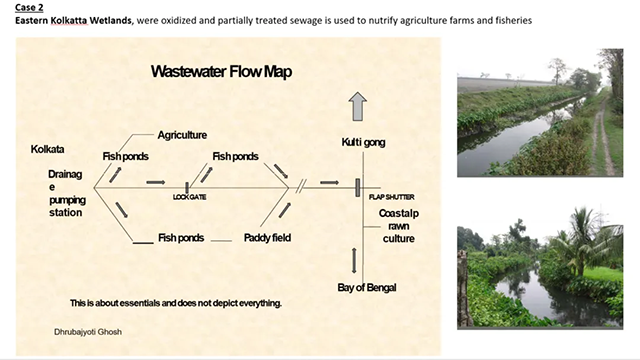
He further noted that the key to the success of this project was fully engaging the surrounding residents. After receiving training, these residents were able to protect the water bodies while also earning an income. This approach is simple, easy to source materials, and low-cost, so it’s easy to replicate. He expressed the hope that this strategy would enhance the resilience of all inland water bodies and surrounding areas in the Mumbai Metropolitan Region.

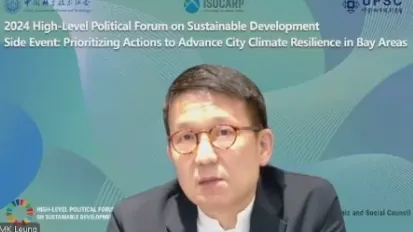
MK Leung Director of Sustainable Design at Ronald Lu & Partners, Hong Kong
Rethinking Resilient and Livable Urban Design
MK Leung used Hong Kong as an example to share how to enhance resilience in high-density bay area cities. He pointed out that to address Hong Kong's complex climate issues, it is important to consider not only the permeability of materials and the effectiveness of green spaces but also how to improve urban ventilation corridors and identify areas for flood drainage and water retention. These factors are all crucial for enhancing the city's resilience.
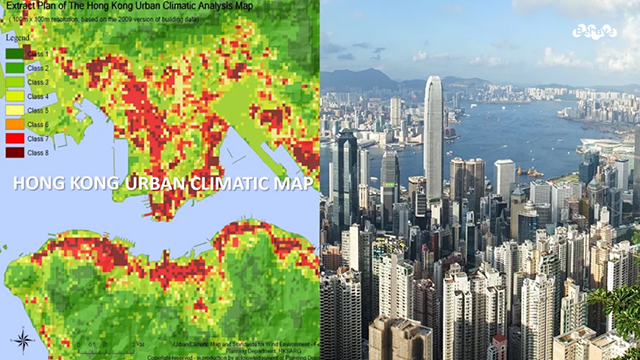
He emphasized the relationship between high-rise buildings and resilient, livable design. Firstly, high-rise buildings not only affect the microclimate at ground level but also create microclimate variations as the building height increases, requiring tailored design strategies for different floors. Secondly, it is essential to ensure that the interior of the building maintains a comfortable temperature for occupants through proper layout and surface modifications. Thirdly, natural elements are important, such as incorporating vertical greenery based on users' visual perceptions. Leung also introduced the concept of a "vertical sponge," exploring how natural rainfall can be absorbed and stored on building facades. He stressed the integration at various levels in architectural and urban design to achieve better outcomes.
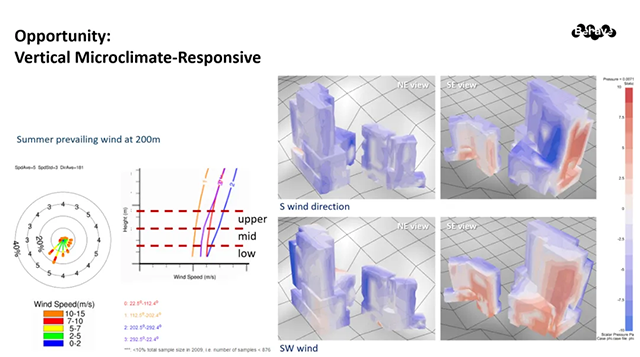
At the end of the conference, the participating guests called on experts from different countries to unite and open a new chapter for the resilient and sustainable development of bay area cities. Around 3,000 experts and representatives from international organizations, research institutions, social groups, universities, and enterprises attended the meeting online.
The United Nations High-level Political Forum on Sustainable Development (HLPF) is organized by the UN Economic and Social Council. Since 2013, it has been held every July at the UN Headquarters in New York to discuss the progress of the implementation of the UN 2030 Agenda for Sustainable Development and its 17 Sustainable Development Goals (SDGs). It serves as the core platform for the UN to implement and review the 2030 Agenda and SDGs globally. The 2024 forum was held from July 8 to 17, with the theme "Bolstering the 2030 Agenda and Ending Poverty in a Time of Multiple Crises: Delivering Sustainable, Resilient, and Innovative Solutions."
The China Association for Science and Technology (CAST) United Nations Advisory Committee on Sustainable Cities, Communities, and Historical Heritage Protection operates under the leadership of CAST, with the Urban Planning Society of China taking the lead. It was jointly established with organizations such as the Architectural Society of China, the Chinese Society of Landscape Architecture, the China Cultural Relics Academy, the Geographical Society of China, the Chinese Society for the History of Science and Technology, and the China Civil Engineering Society. The committee aims to provide consultative services to the UN in the fields of human settlements and historical heritage protection, offer Chinese solutions to major issues in global science and technology governance, enhance China's influence and voice in international human settlements and heritage protection, and contribute to the vision of building a community with a shared future for humanity.
Source: https://mp.weixin.qq.com/s/6K6dQpF4uDfahJ3xU8XYIA <https://www.planning.org.cn/news/view?id=14716&cid=12>
Translated by He Huiling